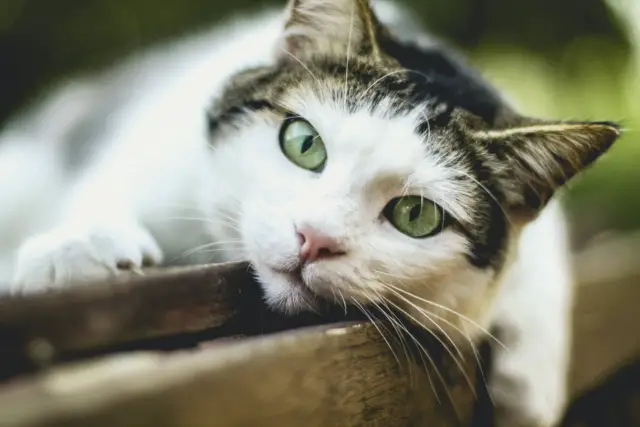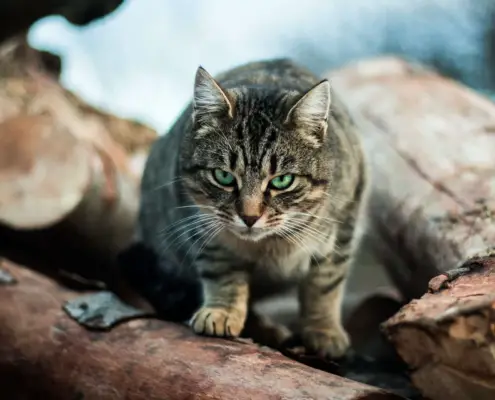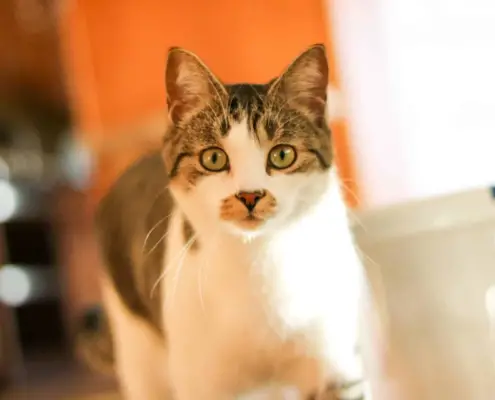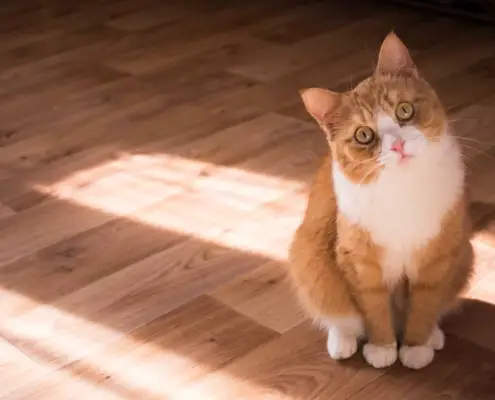
Cats are beloved companions known for their independent nature and mysterious behaviors. While most people are familiar with common feline activities like purring and meowing, there is one aspect of cat behavior that remains a topic of curiosity and speculation – flatulence. Yes, you read it right! Just like humans, cats are also capable of passing gas. In this article, we will delve into the science behind cat digestion, explore the common causes of flatulence in cats, discuss the symptoms to watch out for, and provide tips on how to prevent and reduce flatulence in our feline friends.
Can Cats Fart?
The answer to the question “do cats fart?” is a resounding yes. Cats, like all mammals, have a gastrointestinal system that produces gas as a byproduct of digestion. However, due to their unique digestive physiology, cats may not fart as frequently or audibly as humans do. Additionally, the composition of their gas may differ, leading to less noticeable or distinct odors. It is worth noting that while flatulence is a normal bodily function, excessive or foul-smelling gas can indicate an underlying health issue that requires attention.
The Science Behind Cat Digestion
To understand why cats fart, it is essential to explore the science behind their digestion. Cats are obligate carnivores, which means their diet primarily consists of meat. Unlike herbivores or omnivores, cats lack certain digestive enzymes that aid in breaking down plant matter. As a result, their digestive system is designed to efficiently process and extract nutrients from animal-based protein sources.
Cats have a relatively short digestive tract, allowing for rapid digestion of meat. Their stomach produces strong acids and enzymes to break down proteins, while their small intestine absorbs the nutrients. However, some undigested proteins may reach the large intestine, where bacteria ferment them, producing gas as a byproduct. This gas can then be expelled through flatulence.
Common Causes of Flatulence in Cats
While occasional flatulence is normal for cats, there are several factors that can contribute to increased gas production. One common cause is dietary indiscretion, such as consuming spoiled or inappropriate food. Sudden changes in diet or the introduction of new ingredients can also disrupt the delicate balance of the cat’s digestive system, leading to excess gas.
Another potential cause is the ingestion of air while eating or drinking. Cats that eat too quickly or gulp their food may swallow air, which can accumulate in the gastrointestinal tract and result in flatulence. Additionally, certain medical conditions such as gastrointestinal inflammation, intestinal parasites, or food intolerances can cause increased gas production in cats.
Symptoms of Flatulence in Cats
Identifying flatulence in cats can be challenging, as they may not exhibit the same signs as humans do. However, there are some common symptoms to watch out for. Excessive gas may cause a cat to have an abnormally distended abdomen or experience discomfort. They may also exhibit signs of gastrointestinal upset, such as vomiting, diarrhea, or changes in appetite. Some cats may have foul-smelling stools due to the presence of excessive gas in their digestive system.
How to Prevent and Reduce Flatulence in Cats
Preventing and reducing flatulence in cats requires a holistic approach that focuses on their diet, eating habits, and overall health. Firstly, it is crucial to provide a high-quality, balanced diet that meets the nutritional needs of cats. Opt for cat food brands that use high-quality protein sources and avoid fillers or artificial additives that can disrupt digestion.
Feeding cats smaller, more frequent meals can also help prevent flatulence. This approach reduces the likelihood of gulping air while eating and allows for better digestion. Additionally, incorporating fiber into their diet, either through high-quality cat food or supplements, can promote healthy digestion and prevent constipation, which can contribute to flatulence.
Regular exercise and maintaining a healthy weight are essential for preventing flatulence and maintaining overall digestive health in cats. Physical activity helps stimulate the gastrointestinal system and aids in digestion. Lastly, it is crucial to monitor any changes in a cat’s behavior, appetite, or digestive patterns and consult a veterinarian if flatulence becomes excessive or is accompanied by other concerning symptoms.
When to See a Veterinarian
While occasional flatulence is normal, persistent or severe flatulence should be evaluated by a veterinarian. Excessive gas production can be a sign of underlying health issues, such as gastrointestinal inflammation, food allergies, or intestinal parasites. A veterinarian can conduct a thorough examination, perform diagnostic tests if necessary, and provide appropriate treatment or dietary recommendations based on the cat’s individual needs.
Myths and Misconceptions About Cats and Flatulence
As with any topic, there are several myths and misconceptions surrounding cats and flatulence. One common myth is that all cats fart excessively, which is not true. While some cats may experience occasional flatulence, it should not be a regular occurrence. Additionally, the belief that a cat’s flatulence can be eliminated by changing their diet to a specific ingredient or food type is often unfounded. Each cat is unique, and dietary changes should be made in consultation with a veterinarian.
Funny Cat Fart Stories
While flatulence is not typically a laughing matter, there is no denying the comedic value of unexpected gas. Cat owners around the world have shared amusing stories about their feline friends breaking wind at the most unexpected moments. From startling themselves with a particularly loud fart to clearing a room with an unusually potent odor, these stories remind us that our beloved pets are not immune to the occasional embarrassing moment.
Conclusion
In conclusion, cats do indeed fart, although their flatulence may not be as noticeable or frequent as that of humans. Understanding the science behind cat digestion, recognizing the common causes and symptoms of flatulence, and implementing preventive measures can help ensure the digestive health and overall well-being of our feline companions. If you have any concerns about your cat’s flatulence or digestive health, it is always best to consult a veterinarian for guidance and support. So, the next time you hear a suspicious noise emanating from your cat, rest assured that it’s just their way of clearing the air!
If you enjoyed my article, I would appreciate you sharing it with your network.

Sima Ndlebe
Sima writes for CatBuzz. He is interested in Cats, Health and Fitness, and Entrepreneurship.
Published: 13 November 2023




